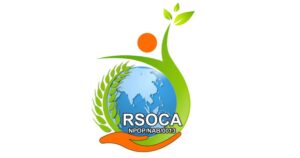Free Shipping On Orders $25+ | Receive 15% Discount with code SHOPMORE on orders over $50
Why use Organic products?
The term “organic” refers to the way agricultural products are grown and processed. While the regulations vary from country to country by definition, Organic products are the products which grown under a system of agriculture without the use of chemical fertilizers and pesticides with an environmentally and socially responsible approach.
This is a method of farming that works at grass root level preserving the reproductive and regenerative capacity of the soil, good plant nutrition, and sound soil management, produces nutritious food rich in vitality which has resistance to diseases.
India is bestowed with lot of potential to produce all varieties of organic products due to its various agro climatic conditions. In several parts of the country, the inherited tradition of organic farming is an added advantage. This holds promise for the organic producers to tap the market which is growing steadily in the domestic and export sector. The National Programme for Organic Production (NPOP) standards for production and accreditation system have been recognized by European Commission and Switzerland for unprocessed plant products as equivalent to their country standards. Similarly, USDA has recognized NPOP conformity assessment procedures of accreditation as equivalent to that of NOP of US. With these recognitions, Indian organic products duly certified by the accredited certification bodies of India are accepted by the importing countries.
There are set of production standards for growing, storage, processing, packaging and shipping that include:
- Avoidance of synthetic chemical inputs (e.g. fertilizer, pesticides, antibiotics, food additives), irradiation, and the use of sewage sludge,
- Avoidance of genetically modified seed (GMO);
- Use of farmland that has been free from prohibited chemical inputs for a number of years (often, three or more);
- For livestock, adhering to specific requirements for feed, housing, and breeding;
- Keeping detailed written production and sales records;
- Maintaining strict physical separation of organic products from non-certified products;
- Undergoing periodic on-site inspections.
Organic food vs. locally-grown food
Unlike organic standards, there is no specific definition for “local food”. It could be grown in your local community, your state, your region, or your country. During large portions of the year it is usually possible to find food grown close to home at places such as a farmer’s market.

The benefits of organic food
Organic Products and Health: How your food is grown or raised can have a major impact on your mental and emotional health as well as the environment. Organic foods often have more beneficial nutrients, such as antioxidants, than their conventionally-grown counterparts and people with allergies to foods, chemicals, or preservatives often find their symptoms lessen or go away when they eat only organic foods.
Organic products reduce public health risks to farm workers, their families, and consumers by minimizing their exposure to toxic and persistent chemicals on the farm and in food, the soil in which they work and play, the air they breathe, and the water they drink. Children are especially vulnerable to pesticides. Thus, offering organic food and fiber products into the marketplace gives parents the option of choosing products produced without the use of these toxins.
Not only does organic production help reduce public health risks, mounting evidence shows that food grown organically are rich in nutrients, such as Vitamin C, iron, magnesium, and phosphorus, with less exposure to nitrates and pesticide residues in organically grown fruits, vegetables, and grains when compared to conventionally grown products.
Organic produce tested for pesticides. Chemicals such as fungicides, herbicides, pesticides and insecticides are widely used in conventional agriculture and residues remain on (and in) the food we eat. While the use of the same is strictly prohibited in organic products. More importantly the organic products are tested for pesticides to re-ensure its safety for human consumption.
Organic food is often fresher because it doesn’t contain preservatives that make it last longer. Organic produce is often (but not always, so watch where it is from) produced on smaller farms near where it is sold.
Organic farming is better for the environment. Organic farming practices reduce pollution, conserve water, reduce soil erosion, increase soil fertility, and use less energy. Farming without pesticides is also better for nearby birds and animals as well as people who live close to farms.
Organically raised animals are NOT given antibiotics, growth hormones, or fed animal by-products. Feeding livestock animal by-products increases the risk of mad cow disease (BSE) and the use of antibiotics can create antibiotic-resistant strains of bacteria. Organically-raised animals are given more space to move around and access to the outdoors, which help to keep them healthy.
Organic meat and milk are richer in certain nutrients. Various study shows that levels of certain nutrients, including omega-3 fatty acids, were up to 50 percent higher in organic meat and milk than in conventionally raised versions.
Organic food is GMO-free. Genetically Modified Organisms (GMOs) or genetically engineered (GE) foods are plants whose DNA has been altered in ways that cannot occur in nature or in traditional crossbreeding, most commonly in order to be resistant to pesticides or produce an insecticide.





















